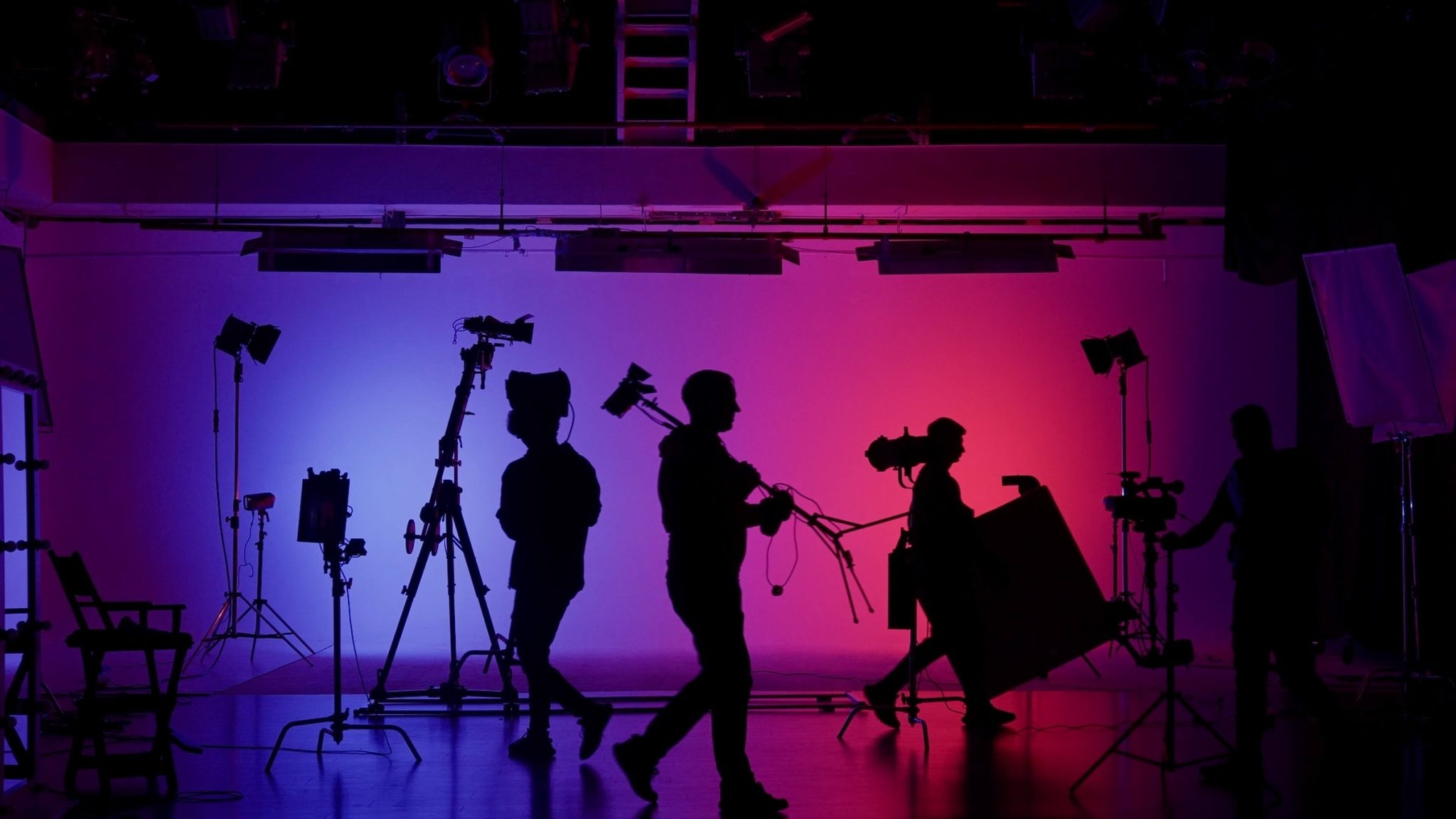How Screenwriters Should and Shouldn't Use Social Media

Are social media platforms a viable networking and marketing tool for screenwriters? Yes and no.
Facebook, Twitter, Instagram, LinkedIn, and a plethora of other social media platforms have opened up new avenues of networking for screenwriters after decades of reliance on cold snail mail queries, cold fax queries, cold calls, and cold email queries.
When social media began to take the internet by storm — with the likes of Facebook and Twitter, especially — the average screenwriter with no Hollywood connections now had some direct access to film and television industry insiders. LinkedIn offered a professional approach, while Facebook and Twitter provided a more casual and personal platform.
However, as we've gone deeper and deeper into the digital age amidst a worldwide culture of social media interaction — and borderline immersion — the rules of business conduct through those platforms have been blurred. Some practices are considered acceptable, while others have become more taboo.
The last thing that you want to do as a screenwriter is to burn a bridge by overstepping your social media bounds. Here we offer simple directives to help screenwriters gauge what is acceptable, what is inappropriate, and everything in between when you're trying to network and market yourself as a screenwriter. And we'll focus on the big three that you can best use — Facebook, LinkedIn, and Twitter.
Facebook Is Personal, Not Business

While Facebook is undoubtedly still a business juggernaut, it's more consumer-driven, and less of a platform to connect with industry insiders.
Many screenwriters are tempted to search for the personal Facebook accounts of managers, agents, development executives, producers, and talent. Some even target assistants by exploring IMDBPro company pages for such titles and names. They will then either try to friend them on Facebook or message them directly.
This is perhaps the most inappropriate way to try to network with industry insiders. Yes, Facebook (and Messenger) offers you an easy way to take a shot in the dark with a quick query or pitch, but these people are primarily using Facebook for their personal lives and connections. In short, it feels like an intrusion when strangers friend you or message you with requests to read and consider screenplays. Screenwriters will quickly burn a bridge when attempting to connect through Facebook.
It's as taboo as walking up to a celebrity when you see them at a restaurant and handing them a screenplay. It only leads to an awkward moment.
Yes, those industry insiders can certainly take measures to make sure that strangers can't see their posts. They can also deny friend requests. But on the screenwriter's side, you should have the decency to avoid contacting them through personal channels like Facebook. And when it comes to messaging them, if you're not a Facebook friend of theirs, your message will go into a particular folder that is rarely checked and offers no notification upon delivery. So it's primarily a waste of time anyway.
Now, when it comes to company pages (studios, production companies, industry organizations) and official Facebook pages for public figures (famous actors, directors, producers, writers), know that those locations are primarily for publicity and public awareness. Sure, sometimes a company or renowned insider will offer opportunities for their fans to connect, but pitching your work will get you nowhere — unless the opportunity they offer is specifically asking you to pitch something.
Overall, Facebook just isn't the place to take those shots in the dark. Yes, it's easy. But that doesn't make it right.
Read More: How To Network with Industry Pros Without Being "That Person"
LinkedIn Is Still Viable

Many people look at LinkedIn as a dying social media outlet, instead of looking at it as more of a job search website.
The great aspect of this site is that it's primarily professional-driven. It's all business. Thus, it's a much more appropriate channel to try and connect with an industry insider — compared to the more personal Facebook community.
With LinkedIn, you're not invading the space of the insider's family and friends. You are connecting with them based on their provided resumes and business-related contacts.
But that doesn't mean it's an easy access point. The best thing that you can do is have a LinkedIn profile that validates you in their eyes.
If you have no picture and next to no job and experience listings, you're not doing yourself any favors. You validate yourself by providing as much information as possible within your profile page. You want to build a resume that connects you with the industry that you're trying to breach — any film school or university credentials, any internships, and especially any and all film or television industry positions. And if you don't have those industry jobs on your resume, do your best to attain some — even if you're working in a non-creative branch of any studio or company.
If you're a military veteran with a military script, be sure to include your military credentials within your profile page. That validates you.
If you're a lawyer with a legal system-based script, your various positions in a law firm, government office, or private practice validates you.
If you're a police officer with a script centered around a police officer character, that validates you.
And if any of these positions are in your past, the mere fact that you worked in the field featured within your script validates you in their eyes.
A LinkedIn profile page that connects you to the industry can be the icebreaker that you need. A profile page that showcases your expertise and insider point of view can tip the scales in your favor as far as intriguing them enough to want to take a look at what you have. A film school or university connection can be the link that connects you and an industry insider as fellow alumni.
The messaging system within LinkedIn doesn't offer instant access to anyone that hasn't accepted a connection request but you can certainly do your best to get connected to them or upgrade to LinkedIn's professional membership that allows you to utilize the InMail feature for those you have yet to connect with.
You're not going to connect with high profile actors, directors, and producers through LinkedIn, mind you. But the site does offer the advantage of connecting with decision-makers like managers, agents, and especially development executives. And if you're going to target the assistants of these people, LinkedIn is a smart place to go because many of them may appreciate the respect of being approached through a business platform like this. They are used to being the underlings.
Overall, LinkedIn is still a viable social media network with the specific benefit of being business-focused, which will often allow you to avoid any awkward moments of possibly impeding on their personal lives.
Twitter Should Be Used, But Wisely

Actors, directors, writers, producers, managers, and even some agents use it. Even our government officials and politicians have embraced Twitter — for better or worse.
Twitter is THE juggernaut of social media. But it's a different beast compared to Facebook and LinkedIn. There are various nuances that screenwriters need to learn and navigate.
First and foremost, you have to manage your Twitter account wisely. You need to present a public profile that isn't polarizing or negatively controversial. If an industry insider visits your Twitter profile and sees strong language, overly-political tirades, and ethically questionable tweets, they're going to pass.
Secondly, the Twitter approach to networking and marketing you and your work is not along the same lines as Facebook and LinkedIn, as far as using direct messages for queries and pitches.
Twitter does have a Direct Messaging option, but it's not the best approach from the get-go. The more well-known the insider is, the better the chances are that their settings will not allow any Direct Messages at all. Beyond that, if the industry insiders aren't following you, any Direct Message will go into a Request Folder, which is often not read.
Instead, you want to use Twitter as the tool that it is meant to be. Your tweets, replies, retweets, mentions, tags, and hashtags will drive any interaction you have with any industry insiders you pinpoint. And if you don't pinpoint specific insiders on Twitter, your hashtags, links you share, and retweets will be central to driving traffic and getting people to see what you're trying to say.
You should start by following the people and companies that you want to network with and market to — that way, you'll see their tweets in your feed, allowing you the chance to look for opportunities to interact with retweets and replies.
If you decide to reply to any of their tweets, keep it simple and on subject. Offer a thank you for the tweet or share words of support in the point they are trying to make. But don't let any replies go to your head.
When a public figure that you admire responds to your tweet or reply, it's very easy to get starstruck or believe that it is something more than it really is. Don't make that mistake. Just keep plugging and interacting.
Having something worth sharing is essential too. If you have a blog, website, or landing page for your own books and films, that's what you should be sharing. It gives people a context of who you are and what you represent. Even if it's not your own URLs, what you share speaks of who you are and what you represent as well. And those types of things are what people reading your tweets will connect with.
And then there's using Twitter as a marketing tool.
If you're trying to pitch your script to specific industry insiders, you need to articulate that tweet wisely. Making direct requests for them to read your script is going to get you nowhere because that would only open the gates to every other screenwriter on Twitter that sees a reply from them saying, "Sure, send it over."
Instead, feel free to take some shots in the dark by just tweeting about your script and tagging some insiders that you feel may respond to it. In essence, you're not speaking or pitching anyone anything. You're simply talking about your script and mentioning people that you'd love to see involved with it. Make no mistake, it's a shot in the dark — and yes, sometimes you can be more direct in hopes that the stars will align — but shots in the dark are often where connections are made, and deals begin.
With Twitter, you never know who is going to be reading your tweet. If you use your tags and your hashtags wisely, allowing your tweets to be seen by as many as possible or by certain specific individuals, you may just catch the right person at the right time.
It's not an exact science by any means. Using Twitter to network and market you and your screenwriting is all about trial and error. The higher profile users likely won't bite. You may get a like or basic reply if you're lucky. But if you've built a good following, present a professional and creative profile and feed, and stay persistent enough without being too obvious and overbearing, you may just connect with that industry insider that is ready, willing, and able to take a chance with you.
Screenplays Aren't Novels or Short Films
Whatever social media network you choose to use, you need to understand that marketing your screenplay is not like marketing a book you've written or a short film you've directed. You're not looking for an audience like you are with novels or already produced films. Instead, you're looking for a connection that can take your script to the next level.
You don't need to get X amount of people to like your script. Why? It won't matter. Instead, you need to get certain people interested in your concept enough to take a look. That's it.
So avoid creating landing pages, official Twitter pages, official Facebook pages, and official Instagram pages for your screenplays. That's what you do with novels and films to create an audience. Those types of platforms won't do you much good at selling your script or getting representation.
Managers, agents, and development executives usually want any scripts they pick up to be private — that best-kept secret. If your script's logline, synopsis, and concept are out there in full view with official social media pages and websites, you'll quickly be asked to take them down if they are going to acquire or represent your script. Landing pages, official Twitter pages, official Facebook pages, and official Instagram pages for your screenplays are often a tell-tale sign of an amateur that doesn't know much about the industry — and that's not the first impression you want to make.
And Remember, They Have Projects and Careers of Their Own
So many screenwriters contact industry insiders in hopes of furthering their own careers. You have to remember that these people have careers of their own. Reading a screenplay is a more significant commitment than many think. It's time taken away from their day-to-day, as well as time with their family after their hectic schedule.
A common request from novice screenwriters entails asking an industry insider to take their script to their Hollywood contacts. Professional screenwriters are also often asked by undiscovered screenwriters to partner on a project. Both of these requests are huge commitments — and to be honest, will more than likely never happen.
It's best to let any such opportunity to present itself. Requesting to collaborate or utilize one's resources presents a very awkward moment for industry insiders. If you've managed to somehow connect with them and they've offered to take a look at the script, leave it at that.
If they feel that it's worth it to them to take it to their contacts, let them offer that.
If you've communicated with a professional screenwriter and they've read your script and felt that they'd like to be a part of it — or any other project of yours — let them suggest that.
It's hard to make contacts and get your scripts read, we know. But there's a way to try and many ways you shouldn't try. It's all about respecting boundaries — even in social media where those boundaries seem blurred to some.
If they end up reading your script and offering notes, that's a pretty generous and rewarding opportunity. Don't ruin it by asking for too much.
There's no avoiding the fact that social media is a powerhouse in today's society — both in personal and professional context. Screenwriters should embrace that and not be afraid to try and utilize them as marketing and networking tools. But you need to realize that Facebook isn't the place to go, that LinkedIn is an excellent supplement, and that Twitter has its nuances that need to be mastered through simple trial and error.
That said, in the end, there's nothing better than good old-fashioned face-to-face and relationship-based networking and marketing — even in this digital age.
Read ScreenCraft's Maps Screenwriters Can Use to Build Their Industry Network and How to Network & Pitch at Pitch Fests, Film Festivals, and Industry Events for more on that!
Are there any other social media networks you recommend for screenwriters? Let us know in the comments!
Ken Miyamoto has worked in the film industry for nearly two decades, most notably as a studio liaison for Sony Studios and then as a script reader and story analyst for Sony Pictures.
He has many studio meetings under his belt as a produced screenwriter, meeting with the likes of Sony, Dreamworks, Universal, Disney, Warner Brothers, as well as many production and management companies. He has had a previous development deal with Lionsgate, as well as multiple writing assignments, including the produced miniseries Blackout, starring Anne Heche, Sean Patrick Flanery, Billy Zane, James Brolin, Haylie Duff, Brian Bloom, Eric La Salle, and Bruce Boxleitner. Follow Ken on Twitter @KenMovies
For all the latest ScreenCraft news and updates, follow us on Twitter, Facebook, and Instagram.
Tags
Get Our Screenwriting Newsletter!
Get weekly writing inspiration delivered to your inbox - including industry news, popular articles, and more!



























